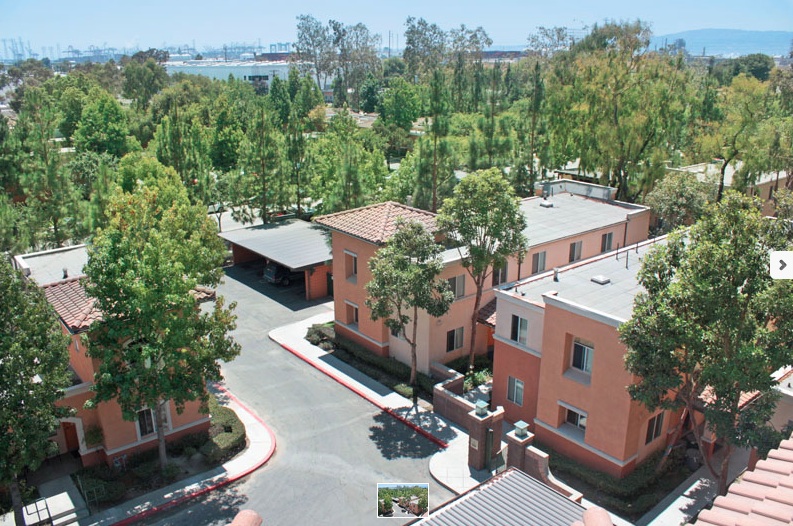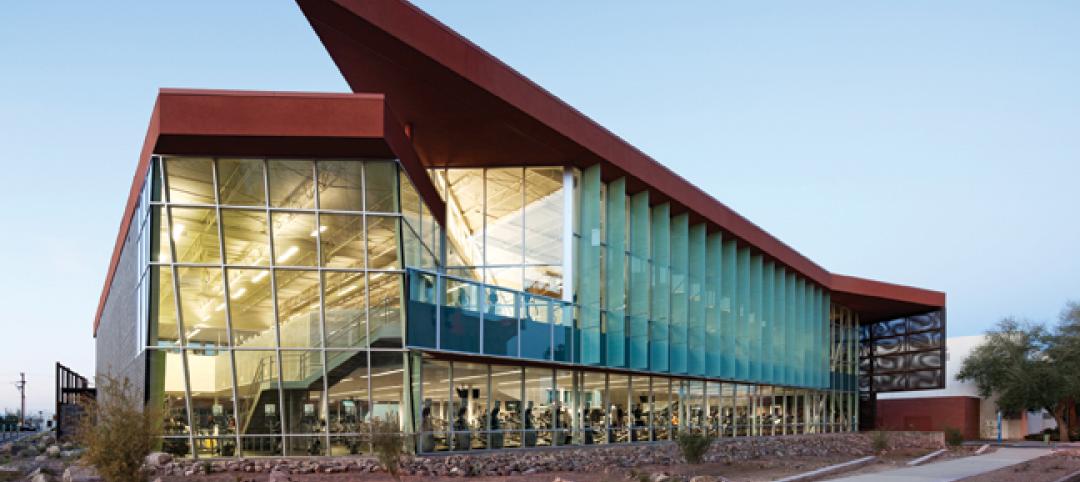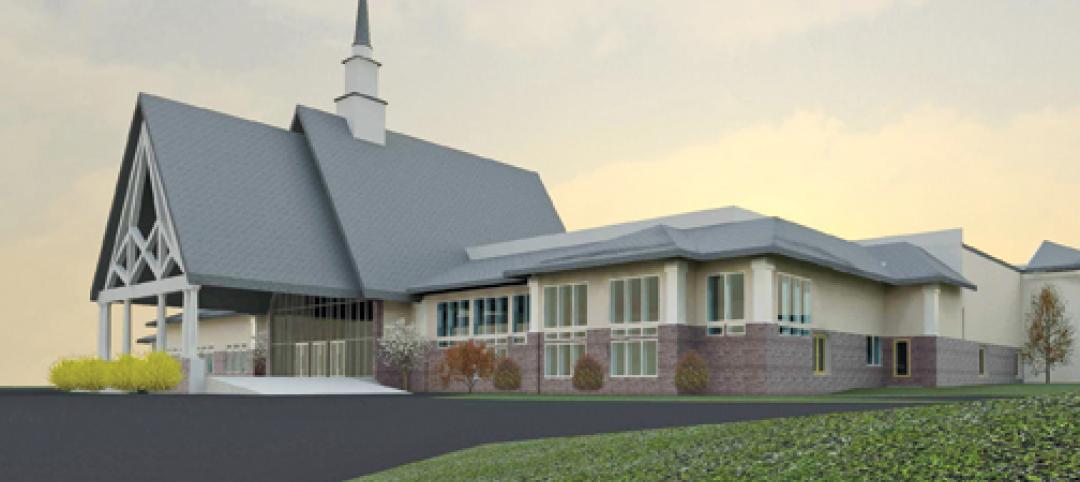The U.S. Green Building Council (USGBC) and Bank of America Charitable Foundation announced today the 11 projects selected for the 2014 Affordable Green Neighborhoods (AGN) grant program.
Each of these neighborhood redevelopment projects are pursuing certification under USGBC’s LEED for Neighborhood Development rating system and are notable for their planned affordable housing, compact design, commitment to green building and sites located near transit or other existing amenities.
“Neighborhoods are central to the health and wellbeing of an entire community, and providing affordable, sustainable housing is critical to USGBC’s mission of creating green buildings for all,” said Rick Fedrizzi, president, CEO and founding chair, USGBC. “We commend Bank of America for their support and commitment to sustainable communities and applaud this year’s grant recipients for their work to advance neighborhood scale sustainability in their communities.”
This program is funded by a two-year, $500,000 grant from the Bank of America Charitable Foundation. Since 2010, these grants have helped to create affordable, sustainable neighborhoods across the country. Each of this year’s projects will receive a $31,000 cash award as well as an educational package to support their pursuit of LEED for Neighborhood Development certification. In addition, five of the grantees will also receive a two-day, in-person technical assistance session with USGBC staff.
LEED for Neighborhood Development integrates the principles of smart growth, new urbanism and green building, while benefitting communities by reducing urban sprawl, increasing transportation choices and decreasing automobile dependence, encouraging healthy living and protecting threatened species.
The 2014 AGN grant recipients are:
• Bartlett Place – Roxbury, Mass.
• Butler Street Y Lofts – Atlanta, Ga.
• Essex Crossing – New York, N.Y.
• Faubourg Lafitte – New Orleans, La.
• Northwest Gardens – Ft. Lauderdale, Fla.
• Rebuild Potrero – San Francisco, Calif.
• Sheppard Square HOPE VI Revitalization – Louisville, Ky.
• TNT Eco-Innovation District – Dorchester, Mass.
• Villages at Cabrillo – Long Beach, Calif.
• West Grand and Brush – Oakland, Calif.
• Westview Village – Ventura, Calif.
“The commitment of these grantees to plan energy efficient, affordable housing is inspiring,” said Alex Liftman, global environmental executive, Bank of America. “Bank of America is pleased to support this initiative that’s helping strengthen our neighborhoods and accelerate the transition to a low-carbon energy future.”
The six members of the AGN review committee, who were selected for their industry leadership, represent the perspectives of architecture and design, New Urbanism, smart growth, affordable housing, community development and tax credit financing. In their deliberations, the review committee members evaluated potential projects on several criteria relating to the strength of the project, the financial needs of the project team and the potential value to the community.
Of the 20 projects previously awarded grants, seven have achieved LEED certification thus far. This includes the first LEED ND Platinum certification in the United States (Paseo Verde in Philadelphia), five LEED Silver certifications and one LEED Gold certification. These seven projects represent more than 270 acres of land, including the construction or major renovation of 4,581 dwelling units and nearly 7.875 million gross square feet of development all to the highest standards of sustainability and inclusion. The remaining AGN grant recipients are LEED registered projects working toward completion.
For more information on the AGN program and recipients, please visit our site.
Related Stories
| Nov 9, 2010
Designing a library? Don’t focus on books
How do you design a library when print books are no longer its core business? Turn them into massive study halls. That’s what designers did at the University of Amsterdam, where they transformed the existing 27,000-sf library into a study center—without any visible books. About 2,000 students visit the facility daily and encounter workspaces instead of stacks.
| Nov 9, 2010
Turner Construction report: Green buildings still on the agenda
Green buildings continue to be on the agenda for real estate owners, developers, and corporate owner-occupants, according to the Turner 2010 Green Building Market Barometer. Key findings: Almost 90% of respondents said it was extremely or very likely they would incorporate energy-efficiency improvements in their new construction or renovation project, and 60% expected to incorporate improvements to water efficiency, indoor environmental quality, and green materials.
| Nov 5, 2010
New Millennium’s Gary Heasley on BIM, LEED, and the nonresidential market
Gary Heasley, president of New Millennium Building Systems, Fort Wayne, Ind., and EVP of its parent company, Steel Dynamics, Inc., tells BD+C’s Robert Cassidy about the Steel Joist Manufacturer’s westward expansion, its push to create BIM tools for its products, LEED, and the outlook for the nonresidential construction market.
| Nov 3, 2010
First of three green labs opens at Iowa State University
Designed by ZGF Architects, in association with OPN Architects, the Biorenewable Research Laboratory on the Ames campus of Iowa State University is the first of three projects completed as part of the school’s Biorenewables Complex. The 71,800-sf LEED Gold project is one of three wings that will make up the 210,000-sf complex.
| Nov 3, 2010
Park’s green education center a lesson in sustainability
The new Cantigny Outdoor Education Center, located within the 500-acre Cantigny Park in Wheaton, Ill., earned LEED Silver. Designed by DLA Architects, the 3,100-sf multipurpose center will serve patrons of the park’s golf courses, museums, and display garden, one of the largest such gardens in the Midwest.
| Nov 3, 2010
Public works complex gets eco-friendly addition
The renovation and expansion of the public works operations facility in Wilmette, Ill., including a 5,000-sf addition that houses administrative and engineering offices, locker rooms, and a lunch room/meeting room, is seeking LEED Gold certification.
| Nov 3, 2010
Sailing center sets course for energy efficiency, sustainability
The Milwaukee (Wis.) Community Sailing Center’s new facility on Lake Michigan counts a geothermal heating and cooling system among its sustainable features. The facility was designed for the nonprofit instructional sailing organization with energy efficiency and low operating costs in mind.
| Nov 3, 2010
Seattle University’s expanded library trying for LEED Gold
Pfeiffer Partners Architects, in collaboration with Mithun Architects, programmed, planned, and designed the $55 million renovation and expansion of Lemieux Library and McGoldrick Learning Commons at Seattle University. The LEED-Gold-designed facility’s green features include daylighting, sustainable and recycled materials, and a rain garden.
| Nov 3, 2010
Recreation center targets student health, earns LEED Platinum
Not only is the student recreation center at the University of Arizona, Tucson, the hub of student life but its new 54,000-sf addition is also super-green, having recently attained LEED Platinum certification.
| Nov 3, 2010
New church in Connecticut will serve a growing congregation
Tocci Building Companies will start digging next June for the Black Rock Congregational Church in Fairfield, Conn. Designed by Wiles Architects, the 103,000-sf multiuse facility will feature a 900-person worship center with tiered stadium seating, a children’s worship center, a chapel, an auditorium, a gymnasium, educational space, administrative offices, commercial kitchen, and a welcome center with library and lounge.
















